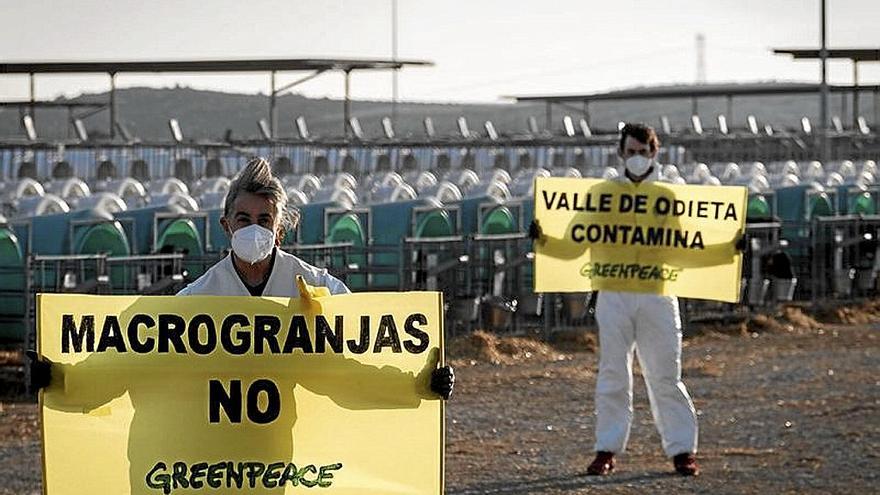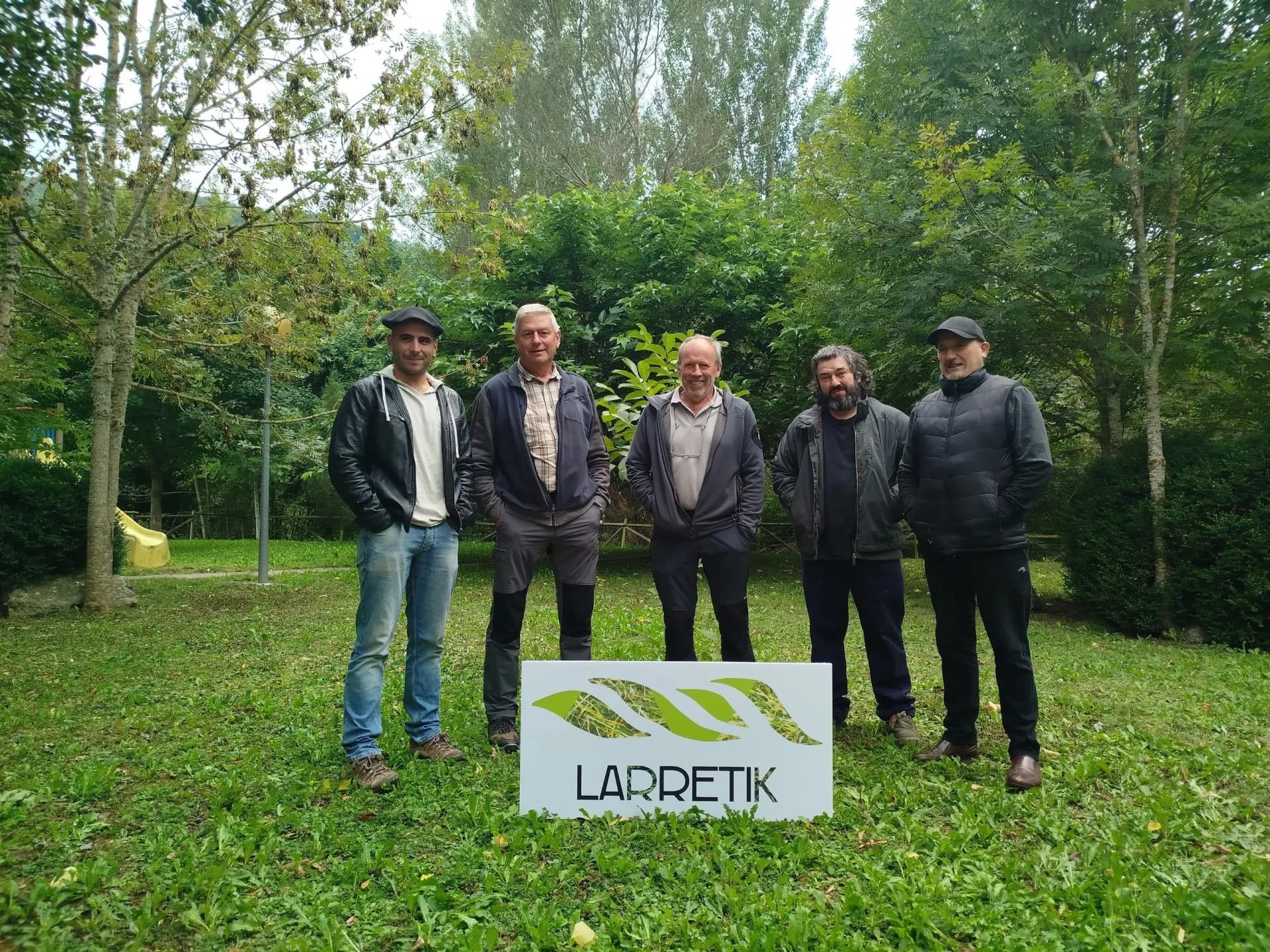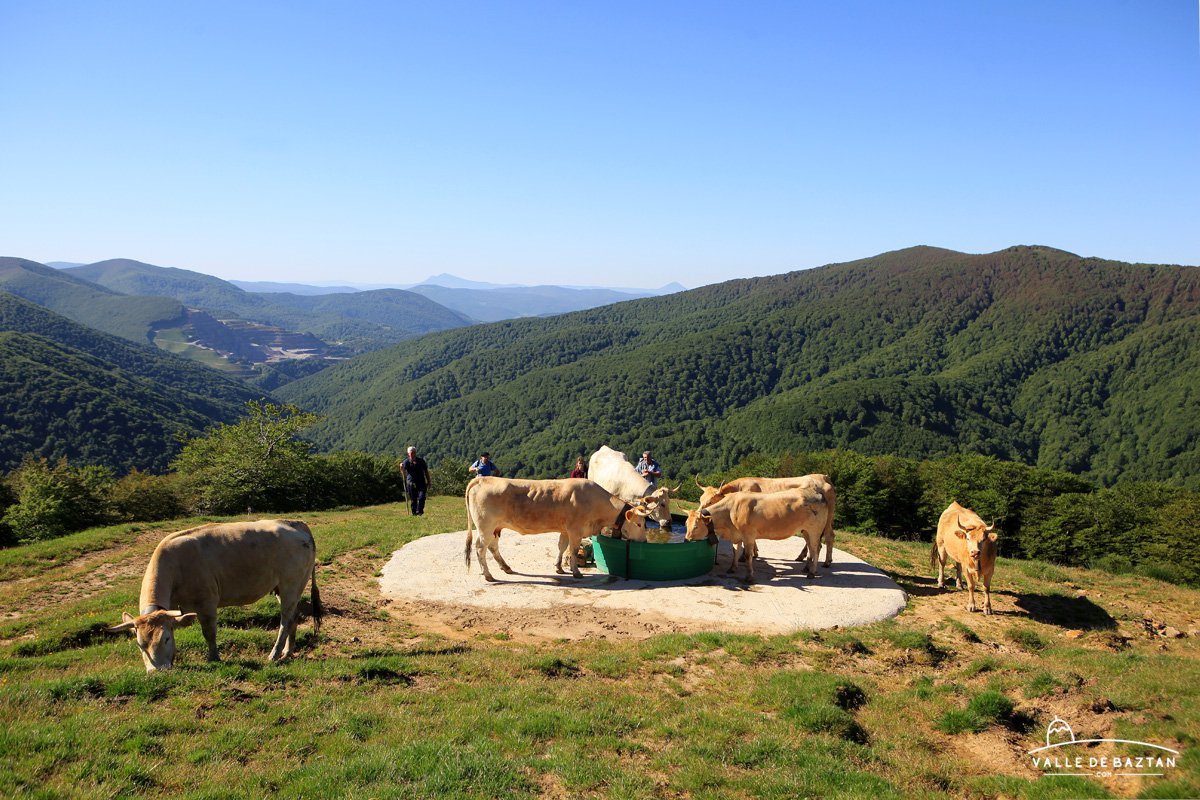Farmers in Gipuzkoa are calling through the Milky March for an increase in the market price of the litre of milk.
- Convened by the EHNE and ENBA unions, the farmers have made a march on Wednesday between Usurbil and Hernani in the Gipuzkoan town of Hernani. They denounce that supermarket chains put the lowest prices possible, with the aim of competing in the market and achieving more profits. Farmers have losses, so they ask sellers to increase the price of a litre of milk to 0.70 cents.

More than twenty tractors and cars from Gipuzkoan breeders have travelled a long caravan this Wednesday in the so-called Milky March of Gipuzkoa. Convened by the EHNE and ENBA unions, the march has developed between the Urbil shopping centre in Usurbil and the Galarreta de Hernani (area where Ldl and Mercadona will be deployed). They ask the selling companies to increase the price of one litre of milk.
The price of some raw materials in the sector, such as feed, electricity and fuel, has increased considerably. But the amount of milk that farmers get has not changed. This has seriously affected many workers in the primary sector, who have difficulty in covering their costs and preventing losses.
GARIKOITZ Nazabal, a member of EHNE, explained that the selling companies have the key to maintaining the viability of the business. “Now that costs are rising, we have gone to several distribution companies to report that these chains have accumulated a large volume of sales and have a direct responsibility for what is happening with our prices.” And it's that as companies win more and more, producers lose.
According to Nazabal, sellers have developed a "destructive dynamic" playing with milk market prices. Each of the supermarket chains offers their white label product and, to compete with the other sellers, try to put the lowest price. Farmers have come together with five of these sellers to claim the change, but as they have explained to them, if a company raises sales prices, they should all rise, and that is not feasible.
In short, the company “blames each other”, according to ENBA President Iñaki Goenaga: “They know they’re playing wrong, but they say they’re doing everything they can and they put responsibility at the expense of the neighbor.” Faced with this, both sides must find a solution. The ENBA trade union has suggested as a solution a study carried out by the Spanish Ministry of Livestock, Fisheries and Food, in which the study indicates that the selling price per litre of milk must be at least 0.70 cents so that farmers do not lose and the sector becomes viable.
Currently, 45% of milk on the market is sold below 0.60 cents of euro. In the event that the price rises by 10 cents of euro, the distribution of these benefits between the different players would be agreed. Both Goenaga and Nazabal believe that farmers should receive between four and five cents more than euro, so that the 0.34 cents they receive per litre would rise to 0.39 cents.
Structural precariousness
Farmers began the latest protests in 2019 to denounce the precariousness of the sector, not only to resolve the situation experienced by milk producers, but also to denounce the lack of viability of the entire primary sector. Nazabal has made it clear that for farmers to go ahead, it is necessary to make the same change in the market for all products: “With different details, but ultimately with the same problem: that housing has to be viable with fair prices.”
#esnemartija bagoaz!!! pic.twitter.com/xI4SpbJ3ed
— ENBA - Euskal Nekazarien Batasuna (@ENBA_eus) August 25, 2021
Livestock workers seek a balance between the optimal quality of life of animals and the economic viability of production. Human beings have placed many physical limitations on the world to protect what is “our”, to protect our animals from external threats: foxes, wolves and... [+]
After a curving road we reached this vast plain. Behind all the shades of green that the fall offers, as a curtain, you saw the white and white Pyrenees. So we discovered Abaurregaina, the highest town in Euskal Herria. Next to the road, we visited the Bilobila project on a... [+]



















